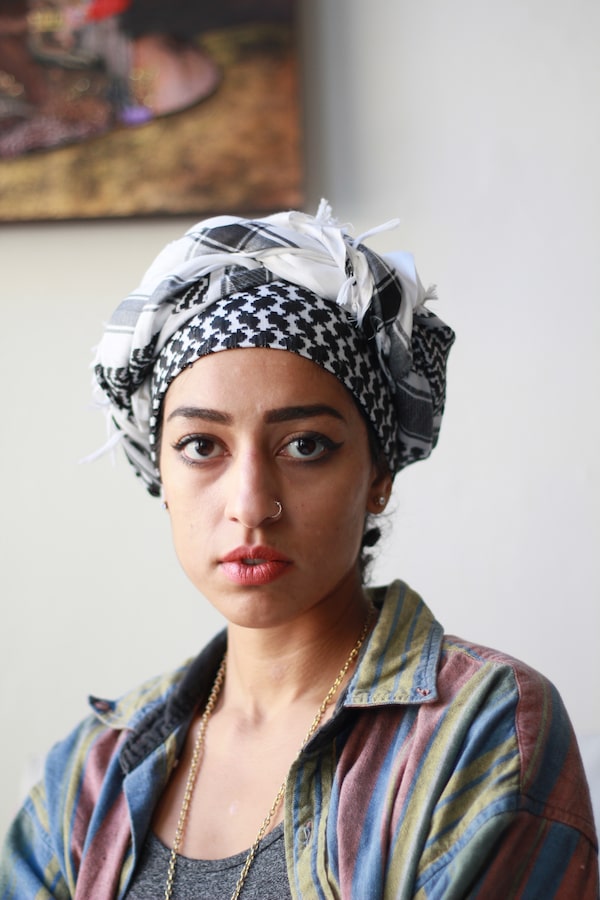
Author and activist Samra Habib is defining herself as a voice for the queer Muslim community with her new memoir, We Have Always Been Here.Yuula Benivolski/Handout
For Samra Habib, sharing her story of coming out as a queer Muslim has been an exercise in resilience. “I want to show [my community] that there is a lot of joy and hope that can come from going through trauma,” Habib says. “I’ve had some really great things happen to me because of it.”
With Just Me and Allah, a 2014 photo essay documenting queer Muslims around the world, and her new book, We Have Always Been Here: A Queer Muslim Memoir, great things haven’t stopped for the 39-year old writer, photographer and activist.
During her project, Habib realized that the people she profiled were longing for the same thing: To create a safe space for themselves while honouring their religion.
Habib’s memoir was born from the belief that she could tell the story of their anxieties and be a collective voice for her community. "There are a lot of queer Muslims that fear persecution for being open. I didn’t have that fear [living in Canada], so I wanted to write an honest story about my similar experiences, rejections and struggles and let them know that they’re not alone,” she says.

'I wrote the kind of book I wish I had access to growing up as a queer Muslim kid,' Habib says about her new title from Viking Books, an imprint of Penguin Random House Canada.Handout
Her story begins in Pakistan. “We were a part of the Ahmadiyya sect, a religious minority of Muslims that were persecuted. As kids we were really good at hiding [our faith],” she says. In the Islamic country, Ahmadis have no religious freedom and are considered heretical by orthodox Muslims. As result, being in hiding is a skill she relied upon for years before embracing her queerness. “I was in a straight relationship in Toronto for so long because I was afraid to make that leap.”
Habib and her family fled Pakistan and came to Canada in 1991. However, they traded the fear of physical and social persecution for another anxiety: How to survive as refugees in a foreign country. In the book, she reveals her experience with racism, an arranged marriage to her cousin at 16, a suicide attempt in her teens and a second marriage by choice at 19 – but for security rather than love.
Penning her memoir forced her to relive these traumatic experiences. “As I was writing, I started forgiving,” she says. “It helped me understand that a lot of the [negative] changes in my father’s behaviour happened when we moved to Canada and he felt like he had lost his ability to provide for his family.”
Habib also became aware that her mother didn’t have many choices and was following the expectations of her culture like so many women in her family. “People are surprised that I am able to have so much empathy, but I think it’s important to forgive because you hurt yourself more than anyone else if you don’t,” she says.

Habib’s self-discovery began with her photo essay Just Me and Allah featuring portraits of queer Muslims, including Saba from Durham, N.C.Handout
But not everything in the book was family-approved. When her parents found out she was writing a memoir, her mother requested that she not write about sex. Coming out is a large part of Habib’s story and even though she knew her mother didn’t love the idea, those particular details stayed in.
As for her siblings, while it was surprising for them to learn about Habib’s internal struggle towards authenticity, they are all completely supportive. Before delivering the manuscript to her publisher, Habib gave it to her sister to ensure that she was representing their parents in an honest way. Her brother translates sections of the book for their parents so they can understand her story too. “I know I can’t expect them to fully embrace me – that’s an unrealistic expectation – but I know that they’ll do their best and get there at some point.”
As for what’s next, Habib wants to be closer to home and embolden her community. “I’ve become more outspoken, in my projects and the work I do – I don’t have to hide anymore,” she says. And she continues to be inspired by the people she meets every day – especially those who are making a positive impact like local housing and community activists. “They’re doing the work because they know that something needs to be done; and not because they want any recognition but because it’s the right thing."